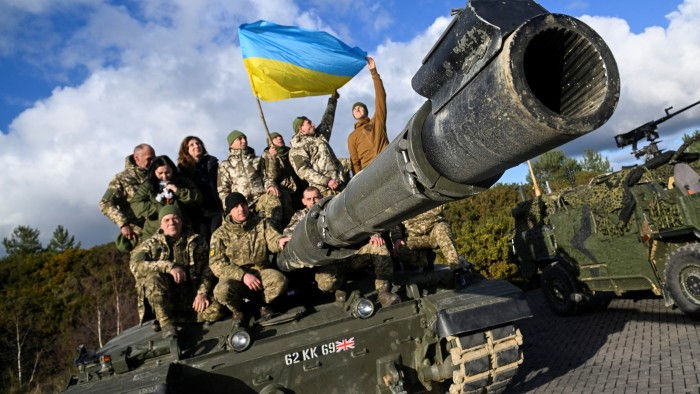Is President Zelensky a dictator?
- Matthew Parish
- Feb 22
- 3 min read

In a recent statement, US President Donald Trump referred to Ukrainian President Volodymyr Zelensky as a "dictator." This claim warrants careful examination, particularly in the context of Zelensky’s rise to power, his governance during wartime, and a comparison with actual authoritarian regimes such as that of Vladimir Putin’s Russia.
Zelensky’s Rise to Power
Before entering politics, Zelensky was a comedian and actor who played the President of Ukraine on a popular television show, Servant of the People. The show was financed by Igor Kolomoisky, a controversial oligarch who played a significant role in Ukrainian business and politics. After the show's success, Kolomoisky backed the creation of the Servant of the People Party, which propelled Zelensky to victory in Ukraine’s 2019 presidential election.
Although allegations of election irregularities, such as carousel voting (a form of vote-rigging where individuals are transported to multiple polling stations to vote multiple times), have surfaced in post-independence Ukraine, there is no definitive evidence that Zelensky’s victory was the result of widespread fraud. On the contrary, international observers deemed the 2019 election largely free and fair.
Revealingly, after assuming office, Zelensky demonstrated independence from his former backer by launching anti-corruption initiatives that led to Kolomoisky’s arrest on money laundering charges in September 2023. This act underscores Zelensky’s commitment to rule of law rather than oligarchic control.
Democracy in Wartime: The Challenge of Elections
With the onset of Russia’s full-scale invasion in February 2022, Ukraine has been under martial law, which has led to the suspension of elections. Critics argue that this move centralises power in Zelensky’s hands, yet historical precedents exist for such measures. During World War II, the United Kingdom suspended general elections, and not even the opposition demanded a vote while the country was engaged in a life-or-death struggle. Similarly, in Ukraine today, with millions of refugees abroad, internally displaced persons, and soldiers actively fighting, holding elections would be logistically unfeasible and potentially destabilising.
Notably, Ukraine’s political opposition has not been vocal in demanding elections during wartime, reinforcing the idea that martial law is a temporary necessity rather than a power grab.
Media Freedom and Public Opinion
Despite wartime restrictions, Ukraine maintains a free press where dissenting opinions are openly expressed. While some media outlets have been consolidated under national security directives, critical voices continue to function. This stands in stark contrast to Russia, where independent journalists face imprisonment or worse for even mild criticism of the government.
Public support for Zelensky remains high, a strong indication that Ukrainians do not perceive him as a dictator. If anything, the prolonged war has solidified his leadership rather than undermined democratic structures. Unlike in Russia, where elections are mere formalities with pre-selected candidates ensuring Vladimir Putin’s grip on power, Ukraine’s democracy—though imperfect—allows for genuine political competition.
Ukraine versus Russia: A Stark Contrast
To label Zelensky a dictator is to misrepresent the realities of Ukraine’s political system. Unlike Putin’s Russia, where opposition figures are jailed or assassinated, Ukraine maintains a vibrant, if sometimes chaotic, democracy. Putin's regime routinely manipulates elections, suppresses protests, and controls state media to maintain its power, whereas Ukraine has continued to allow dissenting voices and has shown a commitment to curbing corruption.
Conclusion
While it is fair to critique Zelensky’s governance—particularly regarding wartime policies—his leadership remains fundamentally different from that of a dictator. The suspension of elections under martial law is a recognized and temporary measure, and the Ukrainian public has largely accepted this as a necessity given the existential threat posed by Russia. Unlike in truly autocratic regimes, Zelensky does not rule through fear, suppression, or fraudulent elections.
Democracy is a spectrum, and while Ukraine’s system may not be flawless, it is far more democratic than its Russian counterpart. The suggestion that Zelensky is a dictator ignores both historical context and present realities, reducing a complex political landscape to an oversimplified and misleading accusation.




